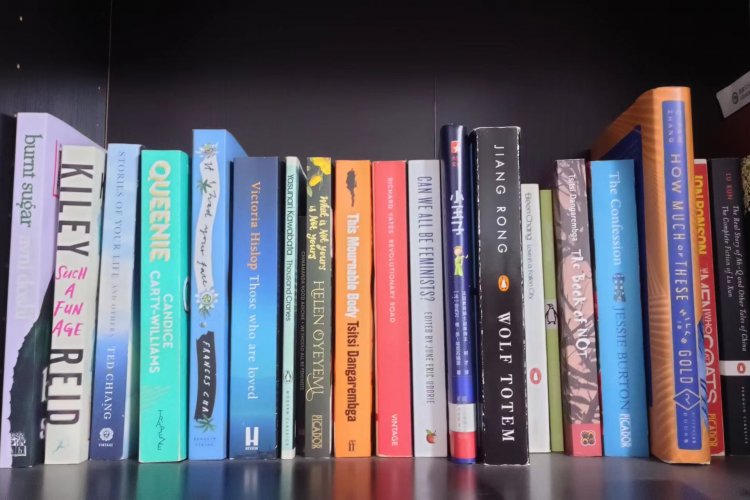'Spittoon Literary Magazine' Celebrates the Launch of Its 5th Issue
This Sunday, Jun 16, bookworms, writers, and the generally Beijing-curious will don their reading specs and join members of Spittoon Literary Magazine to welcome to the world the writer collective's fifth issue. The event, which takes place at Ball House in Gulou, will comprise readings, live painting, a zine fair, and DJs as a celebration of the magazine's growth since its initial publication hit shelves in November 2016. Since then, the DIY journal has gone on to become one of the city's best collaborative literary efforts, showcasing English and Chinese, fictional and non-fictional creative writing inspired by Beijing.
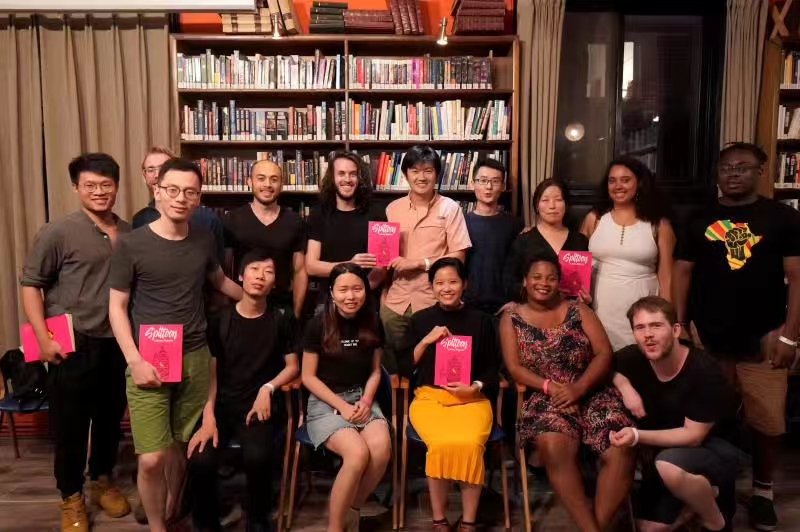
In the words of the Spittoon team, this time around they're particularly proud of how "the publication has evolved from largely English language writing with Chinese writing in translation, to a journal of solely Chinese writing with English translation," adding that it's "a compelling development that reflects a larger ambition that the journal has created over its five issue journey."
Below, we republish an interview with Spittoon Literary Magazine Editor-in-Chief Simon Shieh and Managing Editor Shan Xiaoyue, who discuss the journey of how Issue 5 came to be. Read the original post here.
You’re going to launch the fifth issue of the magazine. What is the story of the Spittoon Literary Magazine?
Simon Shieh: Spittoon Literary Magazine (SLM) started as a community publication in 2016, publishing Beijing-based writers in English and Chinese. Since we released Issue 4 in 2018, SLM has narrowed its focus to seeking out, translating, and publishing contemporary Chinese writers for an international, English-language audience. In narrowing its focus, SLM has significantly broadened its reach and impact, with readers all over the world looking to us for new and exciting Chinese writing; but it has not lost its community-based character. SLM is produced by the same community of Beijing-based writers, artists, and editors who spearheaded it in 2016, and we take immense pride in bringing new Chinese writing to an international audience.
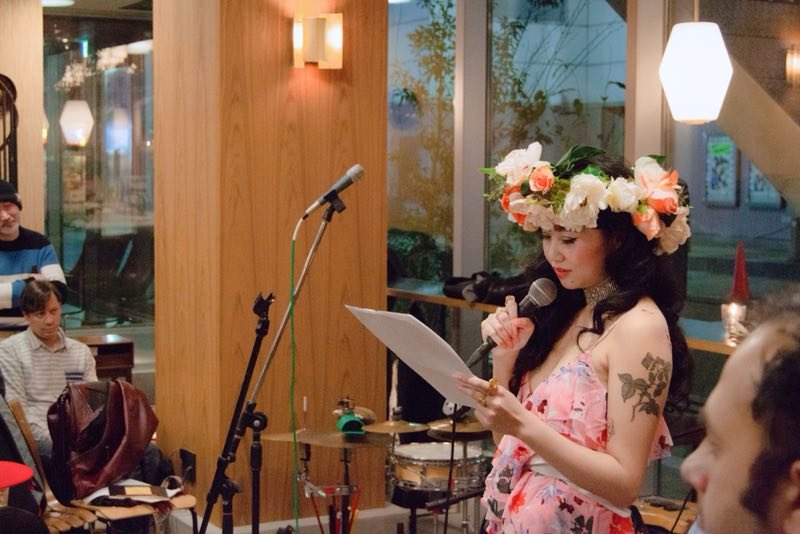
Do you believe that there is a foreign audience interested in knowing more about Chinese literature?
Simon Shieh: The significance of our mission – making contemporary Chinese writing accessible to a Western audience – cannot be overstated. The volatile nature of China’s relationship with many Western countries has led to a distortion of China’s image in their media. When, say, an American thinks of China, s/he does not think of artists and writers, but mass production, forgery, consumerism, etc. The language used to describe China is often aggressive, reductive, and lacking compassion. We seek to change that by giving a platform to some of the country’s most eloquently human voices. That we have a strong readership is attested to by our sold-out issues and the many college students and professors who have said that using Spittoon Literary Magazine in their class has changed their students’ perspectives on Chinese literature and language learning.

Shan Xiaoyue: The interest is definitely there, but I don’t think that’s as pertinent of a fact as realizing that global literature is a cause. By which I mean that it is an absolutely necessary movement to propel human existance forward. Literature is amongst the most precious cultural products a nation can offer, and it is absolutely essential that we fulfill this calling to disseminate and call attention to national bodies of writing, in order to cultivate mutual exchange, understanding, curiosity, and awe. In regards to Chinese literature, the Chinese language and nation is one that, in many ways, discourages communion with the rest of the world, which naturally nurtures the dangerous notion of spectacle for those outside of the country, and an equally treacherous feelling of complacency within it. It is my hope that Spittoon is a publication that actively combats such forces. Equally as important is the fact that East Asian literature in general is experiencing a spring of sorts; there are many writers, young and old, in China who are breaking apart from commonalities and tropes to mark distinct and diverse paths in which language is commanded with subversive and novel intentions. The world deserves to hear such voices.
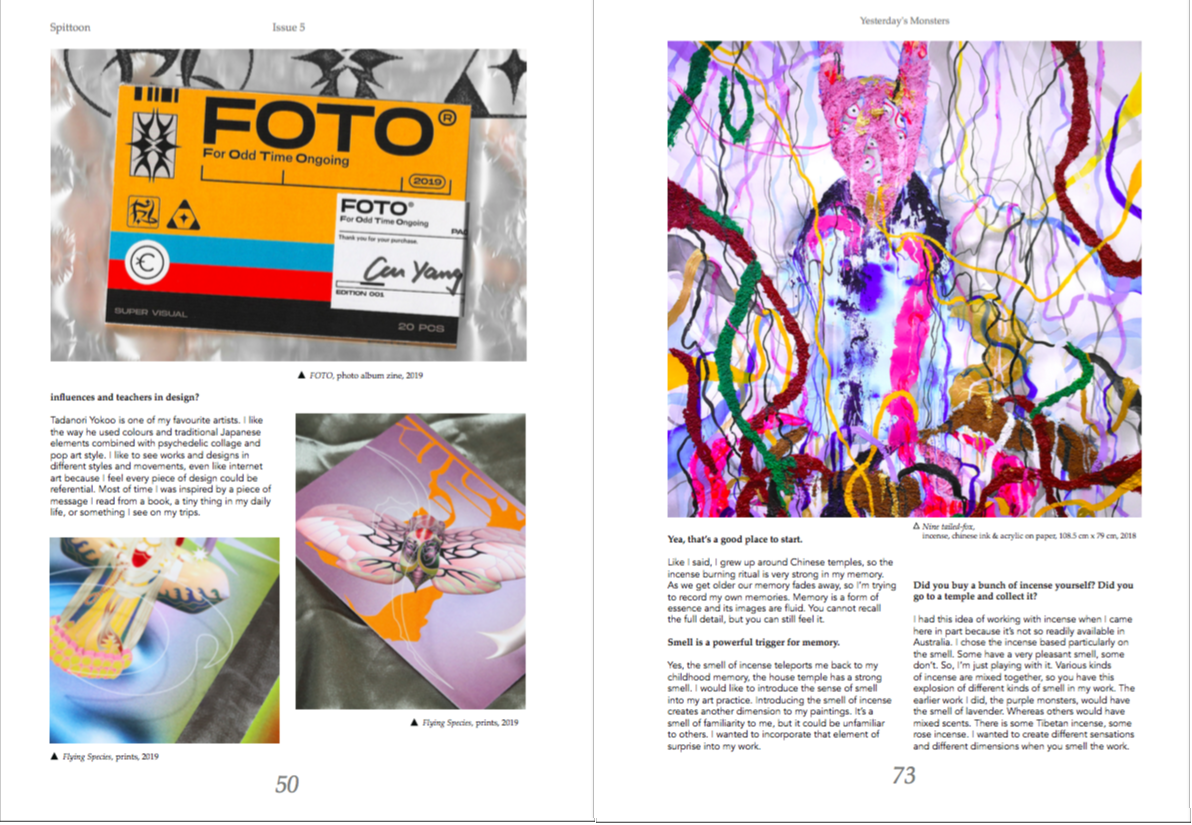
We can see that some translations have two different people working on the same text. Can you tell us more about the translation process of the magazine?
Shan Xiaoyue: The translation process of Spittoon is a little unique in that we have a multi-pronged process that often leads to fascinating dialogues and exchanges between not only two, but three or even five different people. For the poetry in this issue, we paired up a native Chinese writer with a native English writer (with the exception of Chen Xianfa’s poems, which were translated by a single bilingual individual), and the two of them then worked their magic. The translation then is forwarded to our Translation Editor, Stephen Nashef, who goes through and really nails down the various inconsistencies and nuances that languages struggle with in their mutation from one to the next. Of course, Simon and I get involved as well, and pitch in occasionally on certain troublesome or especially elabourate lines. For the fiction of this issue, we had the distinct pleasure of cultivating future translators by pairing up some university students from Duke Kunshan University, headed by the masterly Austin Woerner with our regular Spittoon translators. It’s such a wonder to cultivate future translators from within China, as I think it is always of the utmost importance to have native speakers translate from their own language, with all the cultural context, heritage, and emotionality that comes with it.
What about future projects?
Simon Shieh: Through its last fundraising campaign, Spittoon raised over RMB 20,000 to put toward the production of Spittoon Literary Magazine. With that money, we can ensure the sustainability of the publication for at least a few more years. As far as new projects go, we are always looking for new and innovative ways to make Chinese-language literature accessible and exciting for English-language readers.
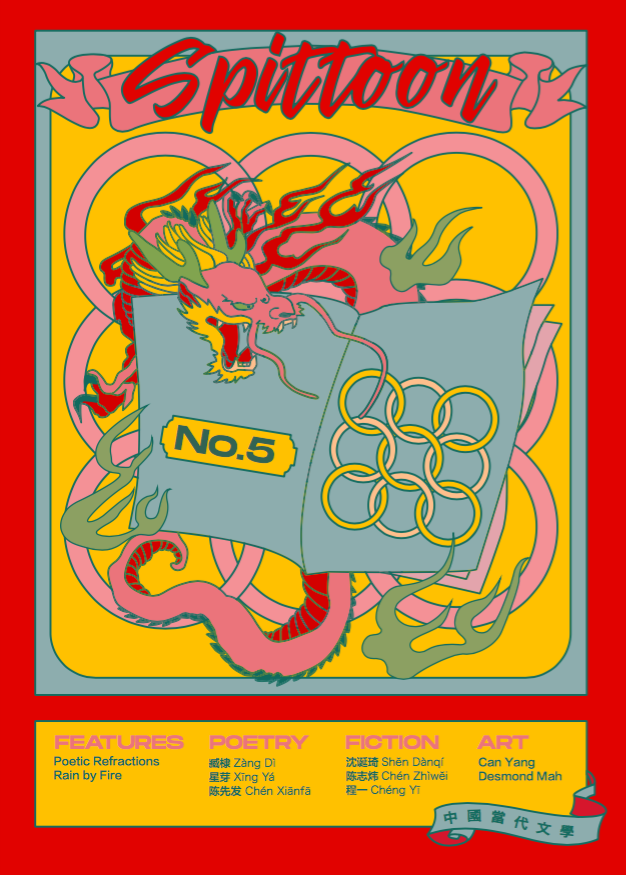
Head to Ball House on Sunday, Jun 16, from 2pm onwards to pick up a copy of Issue 5 and support Spittoon Literary Magazine in their effort to capture Beijing life through the art of writing.
The Beijinger is a proud content partner of Spittoon Literary Magazine.
To read Spittoon content that we've published previously, click here.
Images courtesy of Spittoon





